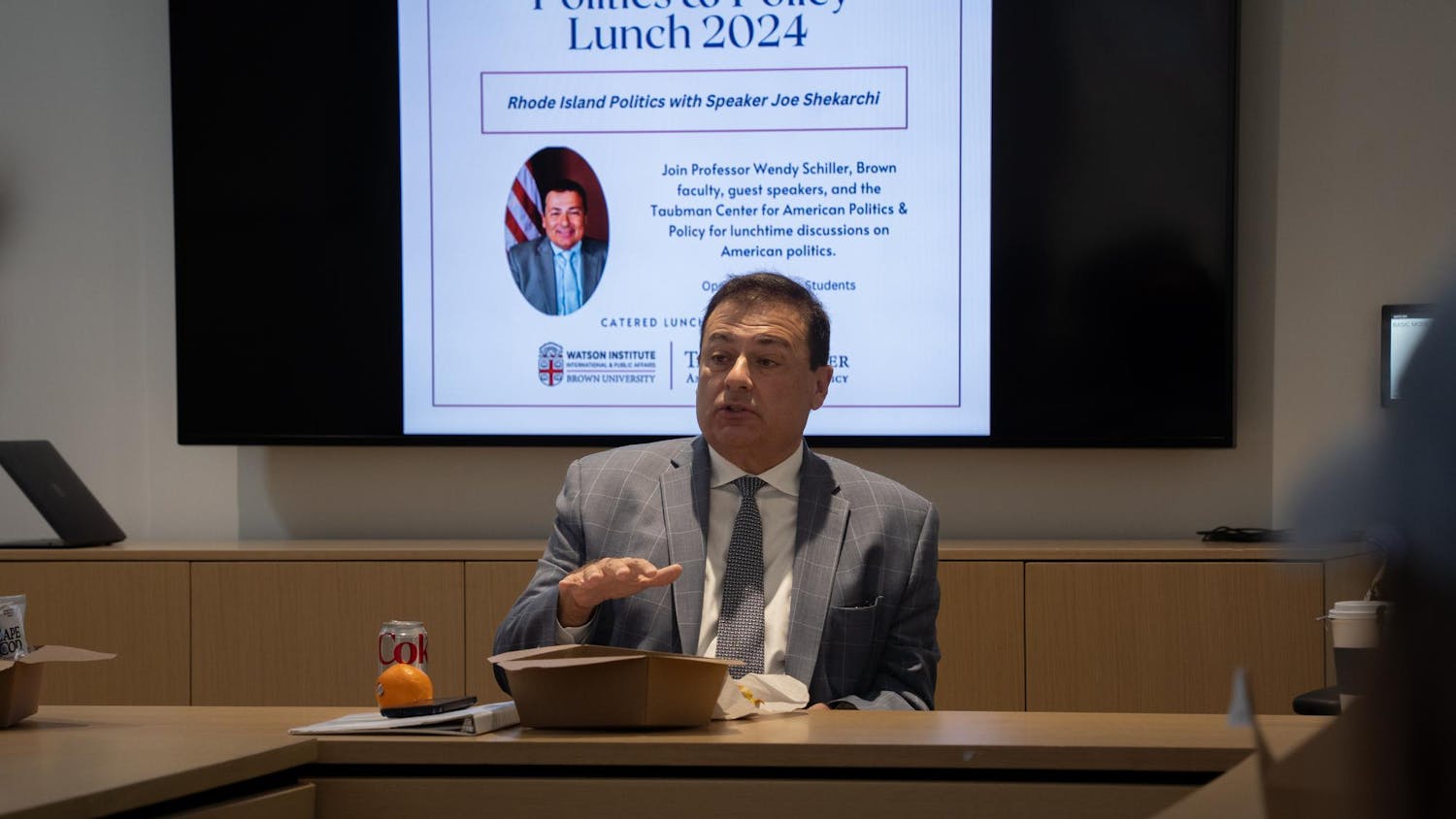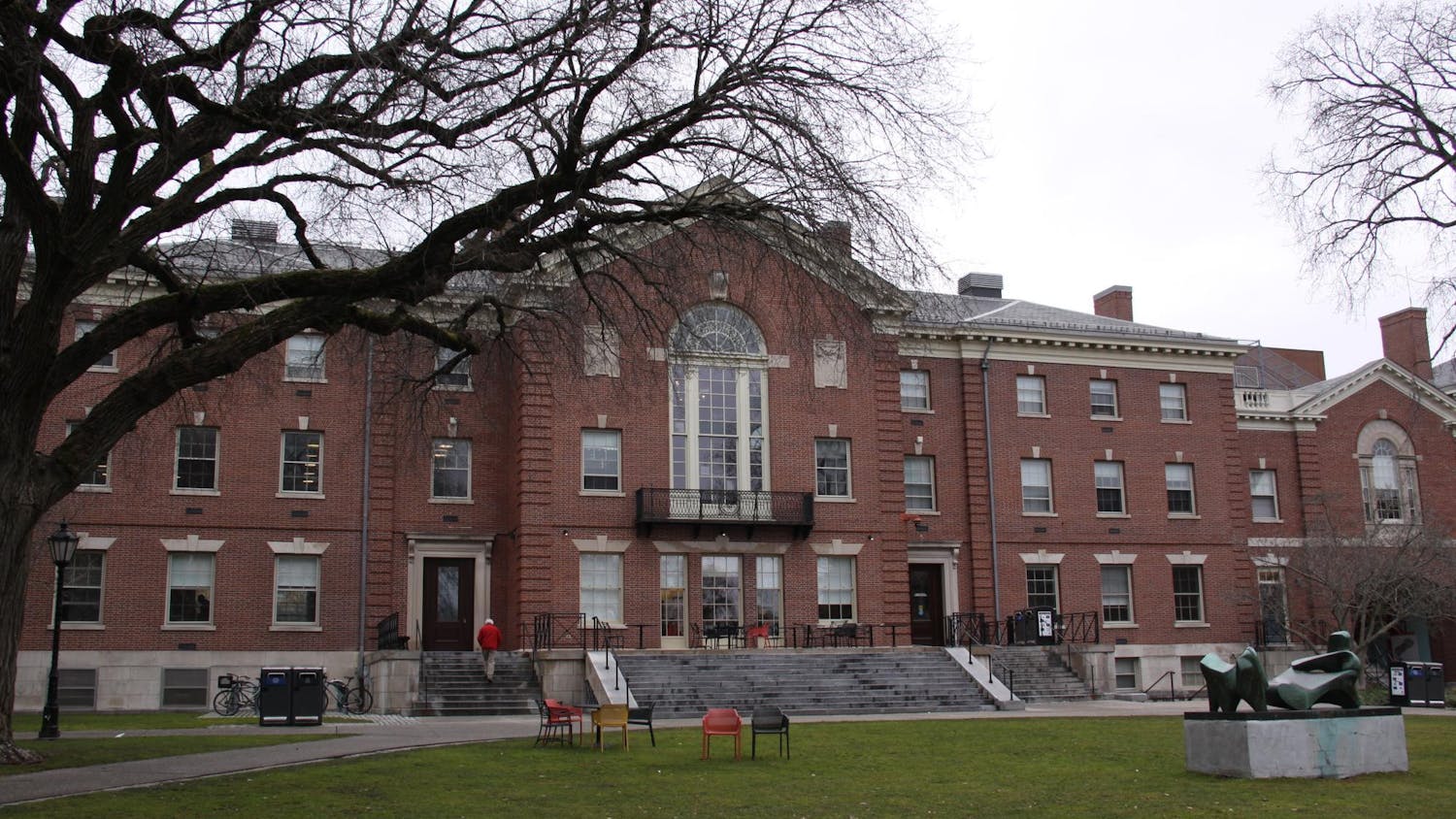In a place that seems beyond repair, director Jeff Zimbalist ’00 sees a story. “I want to keep telling stories of communities overcoming the odds, doing positive things ... making lasting change in places that the media almost always portrays as falling apart,” he said in the 13th annual Casey Shearer Memorial Lecture Friday night in Salomon 101.
The lecture is held in honor of Casey Shearer, an economics concentrator who was celebrated for his sports writing talent and involvement in reshaping Brown Student Radio. After Shearer’s untimely death days before his graduation in 2000, his parents — Ruth Goldway and Derek Shearer — established the lecture as part of the then-new Nonfiction Writing Program and as “a way to remember our son,” Goldway said in opening remarks. Shearer’s older brother Anthony and niece Jasmine — who attended the event for the first time — were also in the audience and together introduced Zimbalist, who had been Shearer’s friend and classmate.
“I’m really honored to be a part of this,” Zimbalist said as he took a seat on stage alongside Professor of Modern Culture and Media Leslie Thornton, who moderated the question-and-answer-style lecture. Zimbalist first remarked on the unconventional start to his film career. He made his first “official pitch” for a film on rural development to several members of the U.N. on a hiking trail in India, he said.
Social change in developing countries has been a theme of Zimbalist’s major projects. The first feature film he directed, “Favela Rising,” depicts the efforts of local artists to direct youths away from the drug-trafficking trade by teaching music. Zimbalist spoke about his partnership with his brother, Michael, who contributed a “desire to use media specifically to try and share messages and stories and context with audiences that otherwise might not have an interest in them.”
The focus of “Favela Rising” was what Zimbalist called a “model of asset-based community development” to impact change.
“At Brown, that was what I was all about,” Zimbalist said, adding that he looks for stories that can connect people in different parts of the world with “their cultural or class counterpart.”
“That’s what the world needs more of,” Zimbalist said.
Working in documentaries as well as fictional films, Zimbalist talked about the challenges of finding “the essence” of a story, particularly when writing scripts.
The writing process is similar for fiction scripts based on real events and documentaries, Zimbalist said. After researching the script, the next stage is “to separate the unnecessary from the necessary,” he said.
Unpredictability is another challenge of depicting real events in places like Brazil and Colombia, where Zimbalist has shot many of his films. He said he wrote the story for a current project about a peace community in Colombia as a fiction script to reach a “wider and more diverse audience.” The film has hired a big-name U.S. celebrity actor, Zimbalist said, but he did not name the individual. Arranging for the actor’s security required meeting with the president of Colombia, a feat Zimbalist said described as nearly insurmountable. He said he and his team had finally managed to arrange a meeting after much struggle — but Zimbalist said the president had canceled the morning of the lecture, which drew a collective gasp from Thornton and the audience.
“It’s devastating,” Zimbalist continued, “because why are those the stakes?” The explanation, he said, is built into the question: “That’s what you asked for when you ordered that dish,” he said.
While his “dish” combines many different flavors of the film industry, from interacting with locals who star in his films to jumping through logistical hoops, Zimbalist said his favorite roles are directing and editing. For him, finding the right balance involves “being able to lock myself up as a hermit” to fully immerse himself in his editing, though he admitted — to laughs from the audience — that doing so is “very incompatible with life.”
After Zimbalist’s conversation with Thornton, he turned to questions from members of the audience. The questions centered on his focus on Latin America and the dangers that accompany his work in volatile places. He said his father, an economist who studies Latin America, used to bring home adventure stories that encouraged him and his brother to take risks. If the danger “is in your imagination, it’s way more haunting than if it’s right in front of you,” he said.
Zimbalist compared the different kinds of fear induced by Stephen King and Edgar Allen Poe, saying that he does not find the graphic, bloody details King reveals scary. On the other hand, Poe “sticks you in a closet, drops a torch in the closet, chains the door — story over,” Zimbalist said. “The rest is up to you.”
“Which is really a roundabout way of saying,” he continued, “that we do our best, and our mom freaks out.”
To the audience’s delight, Zimbalist showed several clips from his most popular films, including “The Two Escobars” and “Favela Rising,” as well as a segment of a video he made for his thesis at Brown. His thesis critiqued models of aid in which “first-world countries are just handing out charity” with an air of superiority, he said.
Before the lecture, Senior Lecturer in English and Co-Director of the Nonfiction Writing Program Elizabeth Taylor — Shearer’s former professor and mentor — announced the winners of the Casey Shearer Memorial Award for Excellence, which highlights the best writing produced in Brown’s nonfiction program. This year’s first-place winner was Elizabeth Powers ’14 for her essay “The Year of the Dragon,” while second place went to Erica Schwiegershausen ’13 for her memoir, “My Brother.”
ADVERTISEMENT




